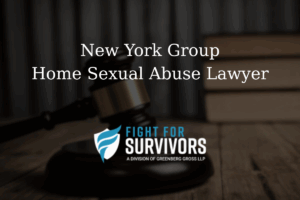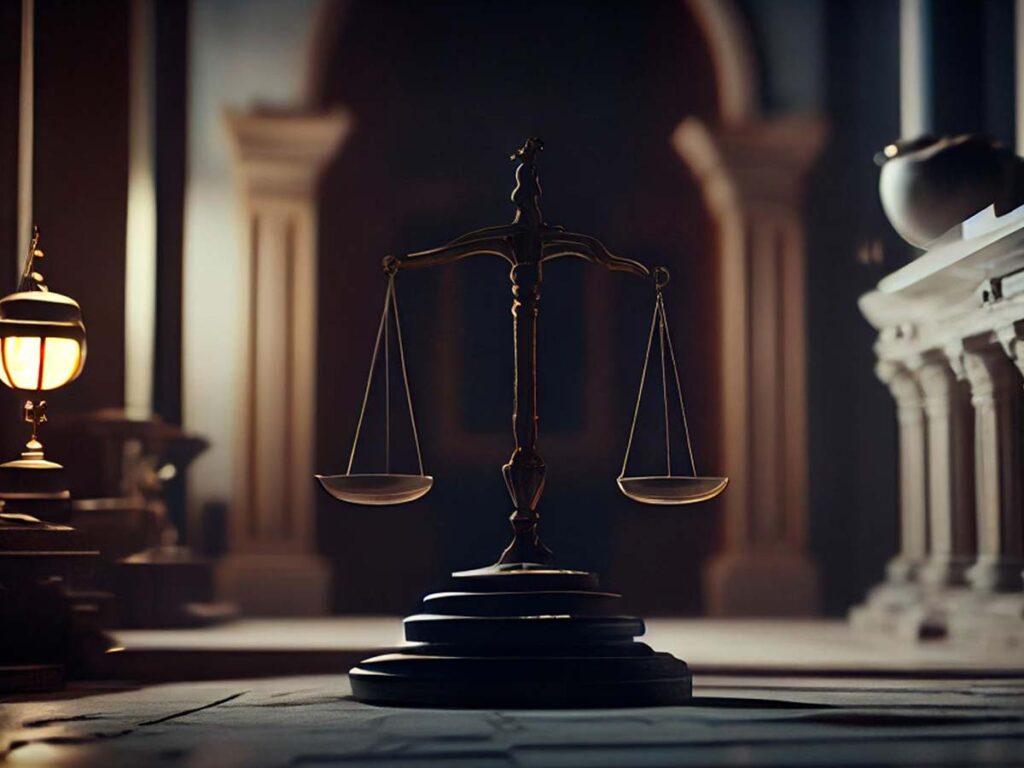
New York Group Home Sexual Abuse Lawyer
Sexual abuse in group homes represents one of the most horrific violations of trust and safety. Survivors, often children, individuals with disabilities, or vulnerable adults, enter residential treatment centers seeking stability, healing, and support. When that environment instead becomes a place of exploitation and trauma, the consequences can be lifelong.
Greenberg Gross LLP is committed to helping survivors of sexual abuse in New York group homes pursue justice through the civil legal system. Our experienced attorneys provide survivor-focused legal representation to those who were sexually abused while under the care of residential treatment centers, foster care institutions, or youth organizations. If you or someone you love experienced sexual abuse in a group home, legal action can be a powerful step toward healing, accountability, and financial compensation.

The Reality of Sexual Abuse in Residential Treatment Centers
Group homes and residential treatment centers are entrusted with caring for some of the most vulnerable individuals in society. These institutions are responsible for providing safe, supportive environments for individuals dealing with substance abuse, mental health challenges, or developmental needs. Yet, for some, these places have been the setting for unthinkable abuse.
Survivors of sexual abuse in group homes often face emotional trauma, low self-esteem, and lasting psychological effects, including post-traumatic stress disorder. Many feel silenced by fear, shame, or threats from authority figures. Some survivors were children when the abuse occurred and only come forward years later, after realizing the full impact on their well-being and relationships.
Sexual predators who work in or gain access to group homes often exploit institutional failures, such as negligent hiring, lack of supervision, or failure to report credible abuse allegations. These are not isolated incidents—they are the result of systemic problems that must be addressed. Sexual abuse cases involving residential treatment centers deserve thorough investigation and strong legal action.
Legal Rights of Survivors Under New York Law
New York law recognizes the serious nature of sexual abuse and provides expanded protections for survivors. Under the Child Victims Act, child victims of sexual abuse have an extended time to file civil lawsuits against institutions and individuals responsible for the abuse. Additionally, the Adult Survivors Act (ASA) created a one-year window (from November 24, 2022 to November 23, 2023) during which adult survivors could file previously time-barred civil claims. While that window has closed, survivors may still have legal options depending on the timing of the abuse and applicable statutes of limitations.
These laws allow survivors to file civil lawsuits, even when the abuse occurred decades ago. Survivors can seek justice not only from their abusers but also from the institutions that allowed the abuse to happen. Whether the abuse occurred in foster care, youth organizations, religious institutions, or group homes, the law supports survivors in holding those institutions accountable.
Our legal team helps survivors navigate these laws with sensitivity and care. We understand that the decision to come forward is deeply personal and often difficult. That’s why we offer a free and confidential consultation to discuss your legal options in a safe, private setting.
Pursuing Civil Lawsuits for Sexual Abuse in Group Homes
Civil lawsuits offer survivors a path to justice and accountability separate from the criminal prosecution process. While criminal charges can lead to imprisonment for the abuser, civil lawsuits allow survivors to seek financial compensation for the harm they endured. This may include medical expenses, therapy costs, emotional distress, and punitive damages.
Filing a civil lawsuit against a group home or residential treatment center sends a powerful message. It holds institutions accountable and creates a legal record that may prevent abuse from continuing. It also empowers survivors to reclaim their voice and begin the process of financial recovery.
At Greenberg Gross LLP, we take a trauma-informed approach to every sexual abuse case. Our sexual abuse attorneys understand the unique needs of survivors and tailor our legal strategy accordingly. Whether the abuse occurred years ago or more recently, we are prepared to pursue justice with diligence and care.
Accountability for Institutions That Failed to Protect
Group homes, foster care providers, and other institutions have a legal and moral duty to protect the individuals in their care. When they fail—through negligence, willful ignorance, or deliberate cover-ups—they must be held accountable. Abuse often occurs not in isolation but in environments where warning signs were ignored, staff misconduct was overlooked, or abuse allegations were dismissed.
Legal action can expose the policies and decisions that allowed sexual abuse to occur. It can uncover patterns of negligent hiring, lack of background checks, poor supervision, and failure to train staff on how to prevent abuse. Institutions may be found liable for failing to respond to credible complaints or for failing to separate vulnerable individuals from abusers.
Survivors of sexual abuse deserve the truth. They deserve legal representation that does not flinch in the face of powerful institutions. Whether your abuse occurred in one of New York’s residential treatment centers, a foster care placement, or a youth program, we are here to hold the responsible parties accountable.
Support for Survivors of All Backgrounds
Sexual abuse does not discriminate. Survivors may be children or adults, and many are living with disabilities, coping with mental health challenges, or navigating recovery from substance use disorders. Some are placed in residential treatment centers for therapeutic support, only to find themselves targeted by those meant to protect them.
We recognize that identity can play a role in how abuse is experienced and reported. Survivors may fear judgment or disbelief due to their sexual orientation, gender identity, or mental health history. Others may struggle with trust after being abused in settings associated with authority, such as school officials, religious organizations, or healthcare institutions.
At Greenberg Gross LLP, we treat every survivor with dignity, respect, and compassion. Our law office is dedicated to building trust, protecting confidentiality, and pursuing justice with integrity.

Your First Step: A Free and Confidential Consultation
We understand that contacting a sexual abuse lawyer can be daunting. That’s why we offer a free and confidential consultation to answer your questions and help you decide if legal action is right for you. There is no obligation, and your privacy is our priority.
We listen without judgment. We support with compassion. We act with strength.
Survivors of sexual abuse in group homes have been silenced for too long. It’s time to be heard.
Frequently Asked Questions
What qualifies as sexual abuse in a group home?
Sexual abuse includes any unwanted or non-consensual sexual contact, exposure, or behavior. This can involve staff members, other residents, or visitors. Abuse often occurs through coercion, manipulation, or threats.
Can I file a civil lawsuit if the abuse happened years ago?
Possibly. The Child Victims Act allows some survivors of childhood sexual abuse to file civil lawsuits until they reach age 55. The Adult Survivors Act, which temporarily reopened the statute of limitations for adult survivors, expired on November 23, 2023. If your abuse occurred more recently, you may still be eligible to file a lawsuit under current law.
What institutions can be held accountable for abuse?
Institutions that may be held liable include residential treatment centers, group homes, youth organizations, religious institutions, and foster care agencies. Legal claims can be made against both individuals and the institutions that employed or enabled them.
What compensation can I seek?
Compensation may include medical bills, therapy costs, emotional trauma, loss of enjoyment of life, and punitive damages. Each case is unique, and your lawyer will help assess the full scope of damages.
What should I do if I suspect abuse is currently happening?
If you suspect abuse, report it immediately to law enforcement or child protective services. You may also contact a lawyer to discuss civil legal options and ensure the survivor’s rights are protected.